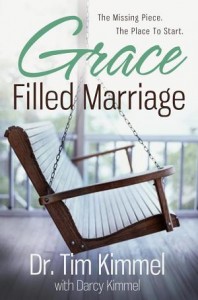Quite frankly, I wasn’t eager to read about “the storm-tossed family.”
But as I began to read Russell Moore’s latest book, I had to restrain myself from bombarding a friend with texted pictures of underlined passages from the book.
You may not be eager to read about the tossing of a storm, but you will definitely want to learn “how the cross reshapes the family,” which is the subtitle of The Storm-Tossed Family. Published by B&H Books, this new book on marriage and family is excellent.
Family as Problem, and Family as Solution
Moore’s opening premise is that just as storm clouds bring life-giving rain as well as devastating floods, so our families can bring to us our greatest joys as well as our deepest sorrows. The same waters that threaten to drown us can become the waters that float our boat.
“The family is not only part of the problem, … but part of the solution” (page 30). Eve’s first son murdered her second, but another Son rescues us all.
God uses His design of family to heal our families. Our marriages and families are torn apart with conflict and cruelty until we are born into God’s family, where we are loved with the lavish affection of the Father and the friendship of spiritual brothers and sisters. Through covenant vows, we receive a glorious Bridegroom, Jesus Christ. We look forward to celebrating at a Wedding Feast and living “happily ever after.”
Family as Spiritual Warfare
Moore recognizes that the family is the battleground for spiritual warfare. Our objective is not escape; it is victory. This is a battle worth fighting, and it is a war we can win.
How then shall we live in our families so that our joys are eternal instead of elusive? How can we navigate our lives so that our burdens are redemptive instead of destructive? The answer is found in the cross. Like the family sometimes, the cross is a place of pain and rejection, but it is also the door to joy and connection.
Living Crucified Lives
A cross-shaped home is an intriguing concept, but it is much more than that. Learning to incarnate the gospel in our own lives is the most important thing we can do. Many see the cross as a relic of the past, but if we are to experience transformation in the present, we must recognize that the cross is our constant pattern for daily living.
How does the cross shape us as children and siblings, as spouses and parents? I think we live cruciform lives in three ways.
1. We live cross-shaped lives as we continually die to our own self-will. Our own will is not necessarily sinful, but clinging to it always is.
2. The gospel transforms us so that we can love others sacrificially: we are willing to suffer for the benefit of another. We are willing to be wounded so that others may be healed. As we suffer willingly and forgive generously, we re-enact the gospel.
3. The gospel renews our thinking so that we can receive our burdens as blessings. God knows how to use the snarled threads in our marriages and families to untangle the knots in our own souls.
God-ordained suffering is always redemptive, which means that God uses it to reverse the curse in the world and in our lives personally. When our spirits are yielded to God, our hardships will always prosper us spiritually. In the Hands of God, our suffering will not deprive us, demean us, or deform us; instead, it will deliver us. It will heal us and enrich us.
The cross of suffering is not an obstacle to joy for those who crucify their self-centeredness there: instead, the cross is the very means to joy. The invitation to pick up our cross (“come and die”) is the invitation to intimacy with God Himself and the invitation to share His joy.
Core Issues
I am thrilled to see fantastic truths about marriage being shared in this book, and I pray that its much-needed message will reach a huge audience. I appreciate Moore’s understanding of the unique partnership within the covenant of marriage, and I am delighted to read his discussions of masculinity and femininity, which are favorite topics of mine. Although I don’t agree with Moore on everything, I recommend this book as one of the best on marriage.
This book does not list “five tips for resolving conflict” or “six things you should never say to your wife.” Those things may be helpful, but they are secondary issues. (For those who are familiar with Radiance, you will understand when I say that The Storm-Tossed Family deals with mattress issues, not sheets.)
The primary issue in marriage is to get our own hearts right and to understand the purpose of marriage. With a sound doctrine of marriage, Moore explains the underlying principles which provide a solid foundation for dealing with secondary issues.
Let me share some great statements from several chapters.
From “Man and Woman at the Cross”:
“Men are warned [in Scripture] … against passivity and refusal to take responsibility…. Women are warned … against signifying a lack of need for the male….” (page 86)
“Headship does not refer to power but to responsibility.” (88)
“Headship will not seem often to the outside world to be ‘being the head of one’s house’ at all. Headship will look, in many cases, like weakness. So does the cross.” (89)
“We are created for cooperation and for complementarity. We do this not through the will-to-power but through the way of the cross.” (94)
“Marriage matters then for everyone because marriage is not just about marriage. Marriage is about the cross.” (95)
From “Marriage and the Mystery of Christ”:
Moore tells engaged couples that “they can’t construct their own vows” because “apart from the rest of the community, they do not know what vows to make. … [T]he primary purpose of covenant vows is not in reference to one’s feelings in the moment but to one’s commitment in the face of the unpredictable and the unimaginable.” (104)
A wedding “is not a party for the couple, celebrating their individualized love. … Those gathered are not an audience but witnesses…. In a Christian marriage, the gathered witnesses are a sign that the church is here to hold the couple accountable to their vows before God. The marriage is not just about the couple but about the gospel. This means the marriage is the business of the whole church.” (105)
“Intimacy means that you love these realities [of your spouse’s strengths and vulnerabilities] … without either taking the other’s strengths for granted or resenting him or her for not having other strengths. Often, the ‘other woman’ or ‘other man’ in a marriage is not a real person with which a spouse is having an affair, but instead is an imagined, idealized husband or wife to which the spouse is constantly compared.” (117)
“Whether married or not, you bear a calling to support and uphold the marriages within the family of God….” (123)
We “will find joy and peace and wholeness in our marriages when we stop expecting marriage to meet all our needs, and start seeing marriage as a war to find contentment in the gospel.” (123)
From “Reclaiming Sexuality”:
“Affairs are usually not about a lack of happiness [in marriage] or a lack of sex. … The devil knows the way to take one down is not through a deficient spouse but through a deficient self” [that is, not finding one’s identity in Christ]. (143, 145)
“Ingeniously, the satanic powers have found a means to direct human erotic energy in a direction that ultimately saps one of erotic energy, and in due time, of the very possibility of human intimacy. The powers of the age will collaborate with the biological impulses to make this seem irresistible….” (150)
“In both artificial Eros and in artificial romance, there is the love of self, not the mystery of the other.” (151)
From “The Road To and From Divorce”:
“How can Christians … speak to issues of social justice and the common good without addressing what is no doubt the leading cause of ‘orphans and widows’ (James 1:27) in our midst? How can we speak … about ‘family values’ while speaking in muted tones on the issue of divorce and at full-volume on other matters?” (162)
“John the Baptist telling Herod he could not have another man’s wife is a quite rare profile in courage in almost any era.” (163)
“The shift in evangelical attitudes toward marital permanence does not seem to have come through any kind of theological reflection or conversation at all. Instead, our approach to divorce seems to have meandered just a bit behind the mainstream of American cultural patterns. … We have grown accustomed to a divorce culture….” (164)
Moore believes that marriage “is to be part of the discipline of the church” (174). He claims that every “marriage that the church solemnizes should be a marriage the church takes as its responsibility” (175). These statements may surprise some readers and will probably raise some eyebrows. I was surprised … and pleased, and this passage raised a cheer from me! It deserved another “thank you, Russell Moore!” text.
Cherish the Blessings
Moore also addresses the topics of children, parenting, family traumas, and aging. In each chapter, he shares clarifying perspective and profound biblical truth.
The book concludes with strong encouragement:
Your family, whatever it is, will bless you, maybe in ways you don’t even notice in the blur of busyness at the moment. Stop and notice these blessings. Listen to what God is telling you through them. … Do not be afraid. … Whatever storms you may face now, you can survive. If you listen carefully enough, even in the scariest, most howling moments, you can hear a Galilean voice saying, “Peace. Be still.” (297)
Thank you, Russell Moore, for writing The Storm-Tossed Family. May a multitude of homes be reshaped by the Cross.


























































